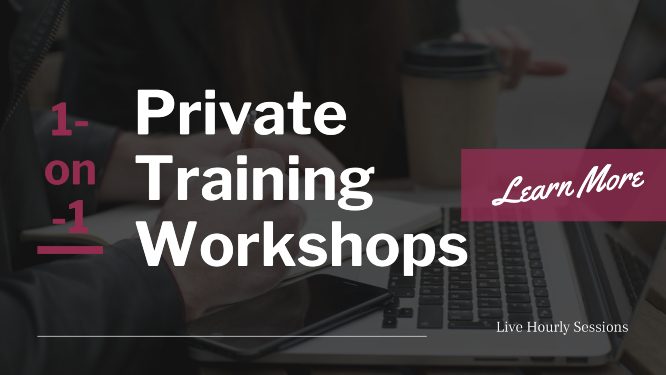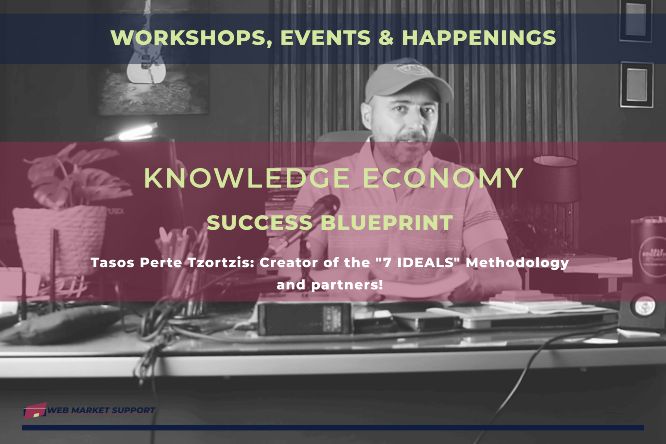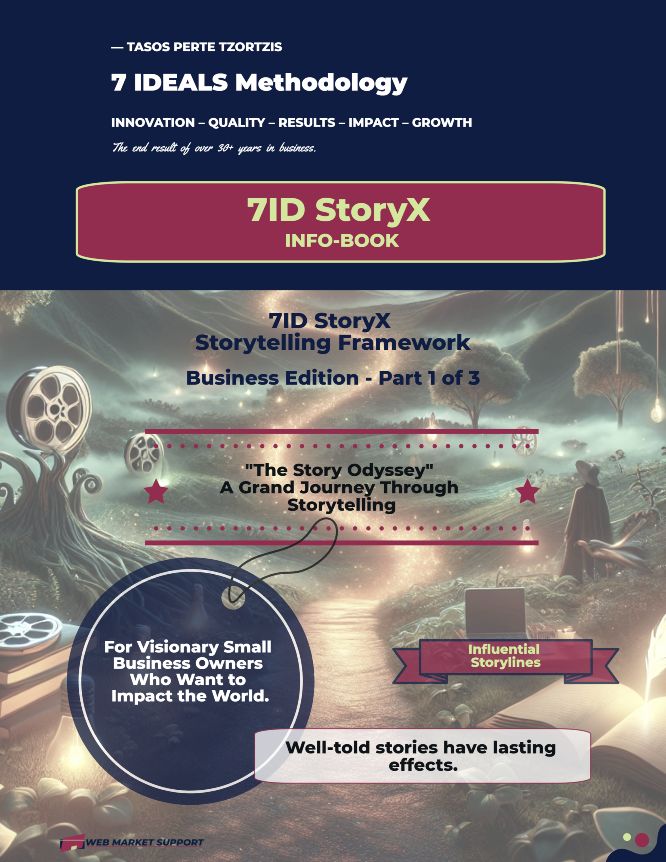Last Updated: Sep 03. 2023 for comprehensiveness.
Are entrepreneurs any different? Then, what makes them unique? Can we discover common traits that define them?
Yes, I clearly notice common characteristics in the majority of them. Not every entrepreneur is the same, but some patterns are obvious.
For example, there are organized and non-organized entrepreneurs that both can get awesome results and reach the masses with their message.
If you want to become one or if you want to improve in all areas of life and business, study these traits carefully. And even you aren’t an entrepreneur and you just want to impress your boss or to get a promotion, this guide will help you.
Common Characteristics of Successful Entrepreneurs

Organisational/Administrative
Doing business in an effective and efficient manner requires first and foremost, organisational and administrative skills.
The goal of business organization is to create a cohesive and streamlined structure that optimizes productivity, communication, and decision-making. It includes aspects such as organizing employees into functional units, defining reporting relationships, establishing workflows, and designing communication channels. Business management/administration involves planning, organizing, and coordinating the various activities and resources of a company to achieve its objectives. It encompasses a wide range of managerial functions, including setting goals, formulating strategies, making decisions, directing teams, and evaluating performance.
The founder/owner of the business needs to know exactly how to organise, manage and administer their organisation in the best possible way.
The entrepreneur – head of the business is not meant to be ignorant of the various functions within the business and how they are connected to achieve the business objectives. They must be omniscient, have an opinion about everything, lead by example, plan, organise, manage, direct, coordinate, and control the business, as well as motivate everyone in the organisation, and represent the business.
Risk-Takers/Being Courageous
This is the most important characteristic. You can’t really progress as an entrepreneur if you don’t take massive action. You can’t wait for the perfect moment in time or the perfect opportunity to knock on your door, you gotta seize the day and take some risks. Without risks, experiments, and failures along the way, you can’t reach new levels of success.
The world needs you and your ideas today.
But entrepreneurs also know their limits, they can’t just risk everything for something that might not return results, there should be a line that should not be crossed. Usually, they take calculated risks.
This is what defines successful business owners.
And at some point, you’ll have to deal with dilemmas, problems, and issues…you need to move forward.
Being courageous is what will help you.
This is the right mindset, being courageous. But…also we don’t want to cross the line, we don’t want to suicide as business owners, we need to take calculated risks.
The Harvard Business Review mentions that in business, courageous action is really a special kind of calculated risk-taking. Business courage is not so much a visionary leader’s inborn characteristic as a skill acquired through decision-making processes that improve with practice.
It’s a skill, you can become better by practicing and you’ll improve as a business owner over time.
Creative
They jump from idea to idea until they hit gold. They experiment a lot. they know that not all ideas will work out the way they wanted them to work but they do not give up. But they are also selective, they don’t just follow every idea that comes their way.
They create new products and services and improve their current product line to satisfy the changing needs of their customers.
They also create opportunities and success for others and for themselves.
If you’re not creative, you can’t survive in the competitive marketplace. On the other hand, if you’re constantly creating new things and implementing new ideas, you improve, you’re reaching new audiences and discover emerging trends and markets, and so you’re getting noticed.
Innovators
Innovating does not always mean inventing something new. Just a new perspective of doing things or a new angle in your products and services might lead to innovative ideas.
The most successful entrepreneurs come up with their own ideas, they don’t just copy what others do. Of course, they are getting inspired and influenced by others, but they also add their personal touch.
Innovation, experiments, and inventions lead to progress. Progress is also created by competition. If there’s no one to compete with, progress may slow down or even immobilize.
An innovation culture helps companies differentiate, influence industry standards and lead the market, satisfy customers on a deep level, engage with employees, adapt to changing trends and demands, become more efficient and productive, and encourage experimentation, making them more resilient in issues and challenges that arise non-stop.
Action Takers/Highly-Motivated
Entrepreneurs can’t wait. They take action immediately. Their inner strength and power are unlimited. They are also very good at motivating others, their team members, and partners. They want to succeed no matter what happens around them. They implement new ideas right away to test them out and collect data.
They are committed and they want to create something amazing that the world remembers, this alone is enough to keep them doing and moving forward forever.
This ‘mindset’ is their secret weapon.
Decision Makers
They definitely do not procrastinate. As risk-takers, they know that a decision has to be made today, not tomorrow. They make decisions under pressure, any time of the day, and they always evaluate their actions.
These are the ones that others seek advice and help with their decisions.
Problem Solvers
They are focused on the marketplace, the needs of their customers and clients, and their problems. They provide solutions to make the lives of their customers easier.
And they want to provide as much value as they can. So what is value? Different people value different things. Entrepreneurs are interested in learning what other people value, their desires, aspirations, needs, and wants.
And they create products and services to satisfy those needs.
Productive
They are aware of time limitations. They know that tomorrow might not be the same. This way, they push themselves into producing more and more and they produce more than they consume. They don’t care if it’s Christmas, Easter, or their birthday. Every day is a chance for improvements.
And they give the best of themselves when they produce. They are like machines and they usually sleep way less than other people and professionals.
Responsible
They take full responsibility for their actions and decisions. They do not complain. They do not blame others for their failures or mistakes.
They accept their mistakes and move forward. They know that there is always time to make things up, to fix them. They know these signs are just pieces of the puzzle.
Disciplined
Successful leaders are disciplined. And discipline comes with a set of benefits.
It helps leaders eliminate distractions thus increasing the chances of reaching their goals.
Discipline acts as a motivational factor and leads to better and wiser choices, a positive outlook, emotional stability, and even health and wealth.
Discipline brings balance between business and life and helps bridge gaps.
Good listeners
To be successful in the marketplace, entrepreneurs should be able to recognize people’s needs, wants, aspirations, and problems. You need to listen and listen carefully. You need to get feedback from the market for your actions. Only then, you’ll be able to provide solutions everyone loves.
They also listen to their partners and they take care of their problems whenever possible, they listen to competitors and how they position themselves in the market, they listen to everything.
Any information is valuable.
Leaders
They lead instead of following. They enjoy administration, management, and giving directions.
That doesn’t mean they are cruel and savage.
They discern people’s abilities and they discover new talents wherever they are.
And as leaders, they recognize ambitious, dedicated, and people with entrepreneurial characteristics and they reward them.
Related: The Contemporary Business Leader.
Open-Minded
They are flexible and they are prepared for changes, failures, mistakes, events that may change the situation and the trends in the market. They are open to new ideas and they usually invite their team members and partners to come up with their own ideas. They capitalize on opportunities that may come their way. They are always on the lookout for something new and they strive to improve everything.
They want to improve and scale in every area of their business, whether it is production, marketing, sales, or customer service.
They are adaptable to changes and they also create space, new environments where their ideas will have the chance to shine.
Curious
Curiosity is one of the most powerful forces, fuels progress, innovation, and creativity, and helps us learn and grow. That’s why you should start asking questions in your business and life.
Curiosity didn’t kill any cat. It’s just a myth because they don’t want you to learn and grow.
And if you’re not curious, you can’t really innovate in your business. So, keep researching the market, people’s needs, and let your creativity juices flow so you can come up with BIG IDEAS in your business. Big ideas? it’s the second phase in our methodology, the “7 Ideals”. And without those big ideas, we can’t really build the base of a thriving brand and that’s especially true in the new version of the web, Web 3.0.
Learners
They constantly educate themselves and study other successful leaders, entrepreneurs, and companies. Knowledge is their fuel to become competent in the marketplace. They read, practice, and take action. They also learn from their failures and mistakes. They study their mistakes so they can improve and become better versions of themselves, They learn by listening to the feedback from the market.
Wherever they are, they stand, they always observe things. They have their eyes and ears open. They often spy on people’s conversations and on their competitors. To learn as much as they can.
Practitioners
They are not only learning constantly, they put theory into practice right away.
They implement things and they practice to hone their skills.
They practice mastering the leadership game.
They don’t just practice to get things right, they practice until they can’t get things wrong in all areas of business and life.
There’s a huge difference.
Excel in Communications
Effective leaders are strong communicators. They articulate the company’s vision and goals to employees, stakeholders, investors, and customers, ensuring everyone is aligned and motivated.
By doing so they bring alignment and clarity, inspire and motivate others, build credibility, trust, consistency, and cohesion, drive adaptation, agility, employee and customer engagement, attract talents, help solve conflicts, encourage innovation and ideas, help manage risks and crises, and help their relationships with potential and existing investors.
Communication is of paramount importance to any business organisation.
Relationships Builders
“Relationship building” for a business owner or leader involves fostering and maintaining positive connections with various stakeholders, including customers, employees, suppliers, partners, investors, and the community. It is about establishing genuine and meaningful relationships that go beyond transactional interactions.
The importance of building strong relationships for any business is paramount: drives customer loyalty and retention, employee engagement and productivity, brand advocacy, and innovation, cultivates supplier and partner collaborations, brigs investors’ confidence, establishes effective communications, supports risks and crisis management, contributes to social responsibility and community impact, opens opportunities for networking and learning, and fosters a positive work environment and culture.
Collaborative
They often proceed with collaborations, joint-venture partnerships, and they hire the best people for their team. They know the importance of working with others as their dream is to grow their companies.
They recognize the power of unions and what a group of highly-successful people can do if they join forces.
So, they take notes all the time and they seek out potential partners and high-performing individuals that may cross paths with them.
Supportive
They support people around them, in their organization, team, family, or network.
And they take this role very seriously.
They support people financially as benefactors, morally as supporters, they give good advice and direction as mentors, and they give love like parents and family members.
They know that when they support others through transitions and transformations, they become a raw model, and those who they supported are now going to support others thus they help make this world a better place.
It’s a virtuous cycle.
Rewarding
A leader is someone who rewards others for their contributions and achievements and is often referred to as a “rewarding leader” or can be described using various positive leadership traits and styles. Here are some terms and phrases to describe such a leader:
Appreciative Leader: This term emphasizes the leader’s appreciation for the efforts and accomplishments of their team members.
Recognition Leader: A recognition leader is known for acknowledging and rewarding the accomplishments and hard work of team members.
Incentive Leader: An incentive leader uses incentives, such as rewards or bonuses, to motivate and acknowledge the achievements of their team.
Reward-Based Leader: This term highlights the leader’s reliance on rewards as a means of encouraging and appreciating their team’s efforts.
Motivational Leader: Motivational leaders inspire their team members through positive reinforcement and rewards, which can boost morale and productivity.
Encouraging Leader: An encouraging leader provides encouragement and rewards to foster a positive and high-performing team environment.
Empowering Leader: Empowering leaders empower their team members by recognizing and rewarding their efforts, which can enhance team members’ sense of autonomy and ownership.
Positive Reinforcement Leader: This term emphasizes the leader’s use of positive reinforcement, such as rewards and recognition, to reinforce desired behaviours and outcomes.
Supportive Leader: A supportive leader supports their team members by acknowledging their achievements and providing rewards as a form of support and motivation.
It’s important to note that effective leaders often use a combination of leadership styles and traits, and the act of rewarding and recognizing others is just one aspect of their leadership approach. Such leaders can help foster a positive work environment, boost morale, and encourage continued high performance among team members.
I analyse the topic of rewarding employees in detail, I give you the benefits of this approach, and I share a personal story as well.
Self-Confident
All leaders are self-confident. They know their superpowers and this is reflected in every move they make.
They know that other people can count on them and they are ready to assist whenever it’s necessary.
But there’s a fine line that successful entrepreneurs don’t cross.
They are confident, yes, but not extremely confident.
Leaders know that they make mistakes too and they always seek feedback and they evaluate their own actions as well.
This leads us to the next trait.
Self-Critical/Self-Aware
Leaders know well that in order to leave their own legacy, it’s important to constantly improve in all areas of business and life.
To do that, they look at themselves and are critical.
They know there’s always room for progress, they are examining themselves regularly.
By evaluating their own actions, behaviour, and accomplishments, they get insights into what’s possible, what needs to be changed, and what to do next.
Analyzing their mistakes, they learn from experience and grow.
They reconsider everything and they enter a state of renewal. They also reward themselves.
They set higher goals, always striving for improvement.
But they are also self-aware.
They want to know what other people in their organization, team, family, or network think about their actions and they are asking for feedback.
Persuasive
They tend to get what they want in the end. They are usually good at marketing, sales, and persuasion. They like selling and it’s not only about products. They enjoy selling their ideas, thoughts, and vision. They have their own unique way of having others say ‘yes’ to their requests.
They also manage to persuade family members and friends. Rare are the occasions where their suggestions are getting rejected.
Storytellers
Storytelling in business plays a huge role. Successful entrepreneurs recognise the tremendous power of words and stories.
They use stories to attract customers and convert them into clients, inspire action and motivate their workforce, close deals with partners and external vendors, and much more.
Enjoy Spending Time in Private
They put their needs at the forefront. Because a successful entrepreneur is one that is well-balanced. Although they are collaborative and seek out partnerships, they need some time alone to get things done. They need their privacy and often you’ll find them alone in the office doing important stuff, walking in the park for a break, or driving just to clean their minds and refresh.
They know that without distractions, they can progress fast and come up with brilliant ideas. This is why they are taking advantage of their private time whenever possible.
Customer-Focused
Most successful entrepreneurs follow customer-centric approaches to develop products and services that solve current problems in the market, thus attracting the right-fit customers more easily and faster and building immediate trust.
Being customer-centric drives customer loyalty, leads to increased sales, helps companies differentiate, builds brand advocacy and long-term relationships, and fosters improvements by addressing customer feedback.
Impact & Value-Driven
The most successful entrepreneurs and leaders understand that the game is not about selling a much as they can. It’s not about producing non-stop and coming up with product ideas all the time.
Instead, they are 100% focused on helping as many people as they can, impacting as many lives as possible.
As the famous Zig Ziglar said…
You can have everything in life you want, if you will just help enough other people get what they want.
And this is our focus with our “7 Ideals” methodology, providing unique user experiences and impacting people’s lives.
A value-driven philosophy is one of the biggest competitive advantages and business leaders know that first hand.
Being value-driven means that you respect and count all the interactions, transactions, and touchpoints with everyone – strangers, prospects, customers, fans, employees, suppliers, vendors, partners, other business owners, communities, and society at large.
Business leaders impact and improve people’s lives with their products/services, and generally, with their presence. It’s all about adding value, helping, caring, and listening.
Community/Movement Builders
Business leaders know very well that the most successful brands are those that don’t just sell stuff to strangers, but those that have fans and loyal followers.
The concept of creating impact, fostering community, and sparking a movement within a business has profound significance for its success and growth: drives social responsibility and ethical business practices, customer loyalty, brand advocacy, competitive advantage, engagement, long-term relationships, trust, credibility, employee engagement and satisfaction, authentic branding, positive public relations, cultural relevance, creativity, innovation, legacy, longevity, stakeholder engagement, and above all, inspire change.
By focusing on creating a meaningful impact, fostering communities, and sparking movements, businesses not only succeed financially but also contribute to a better world.
Ensuring Quality
Ensuring “quality” in all aspects of the business is a critical role of the business owner. Quality is the foundation of customer satisfaction, brand reputation, and long-term success.
Leaders know that quality is the strongest competitive advantage and thus, they ensure quality in various areas of the business: product development, customer service, market interactions, business processes, employee training and development, compliance and regulation, feedback and improvement, supplier and vendor management, and others.
Being focused on quality fosters a culture of excellence and continuous improvement.
Ethical Business Practices
Sure, there are fraudsters and scammers who make millions and billions of dollars by fooling other people.
But, I’m talking about ethical business leaders that respect everyone.
Leaders abide by ethical business practices, they do not behave in a morally wrong way, they follow the high standards of the business code of conduct, are authentic and transparent, and they do not deceive, defraud, cheat, or mistreat people, animals, and the environment.
They play a fair game!
They care about their employees, customers, partners, suppliers, vendors, stakeholders, and investors. They care about society, the environment, and all living beings.
They know that their business operations affect society in multiple ways and they are responsible in this highly demanding role.
Result-Driven
Successful entrepreneurs know that everyone expects results from their efforts and activities: employees, customers, partners, vendors, suppliers, various stakeholders, investors, and society at large.
The business owner ensures results in various aspects of the business: goal setting, strategic planning, performance monitoring, decision making, financial management, resource allocation, product development, marketing, advertising, sales, and so much more.
The owner holds themselves and their team accountable for delivering results. They foster a culture of responsibility and ownership throughout the organization, plus they encourage a culture of continuous improvement.
By emphasizing results, a business owner/leader highlights their hands-on approach to steering the business towards success. This focus on results underscores the owner’s commitment to the company’s vision and mission and their dedication to delivering value to customers, employees, and stakeholders.
Experts in Financial Management
Doing business means dealing with money all day long.
Successful entrepreneurs are very often experts in economics and financial management.
They know the factors that drive economic self-sufficiency for their enterprise; liquidity, cash flow, reserves, internal financing and self-financing, depreciation, the working capitals, and they know the credit capacity of their organisation.
By being responsible and effective with their finances, they drive stability, sustainability, profitability, investor confidence, resource allocation, operational efficiency, long-term growth, employee morale, and competitive advantage, help decision-making processes, cash flow and risk management, debt management, business planning, funding and financing,
Risk & Crisis Management Skills
Business involves risk and crises happen all the time. Successful entrepreneurs deal with those unpleasant and inevitable situations with absolute confidence, inspiring and motivating others to do the same.
Dealing with risks and crises effectively in the context of business is essential for a variety of reasons, and it offers several benefits.
Here are some of the key advantages: preserves brand reputation, minimises financial impact, keeps the business going forward, gains competitive advantage, protects the brand legally, drives employee morale, stakeholder trust, innovation, and growth, improves decision-making processes, reduces insurance costs, supports the brand’s sustainability efforts, and contributes to the long-term viability of the business.
Critical Thinkers/Analytical
Business owners gather data from an enormous amount of sources and analyse this data to improve their company’s performance and drive growth.
Critical thinking and analytical skills are essential for leaders as they help solve problems, and understand and manage risks, drive decision-making and continuous improvement, and contribute to strategic planning efforts and communication channels.
Analyzing data often requires a keen eye for detail, ensuring that no important information is overlooked. Analytical skills complement critical thinking by helping business leaders spot patterns and anomalies in the data.
Visionaries
Without the vision, you can’t move forward in the entrepreneurial world. You need to pursue your dream day and night. They often get little to no sleep thinking of their next product or service, a new idea that could move mountains and make the world a better place. And when they wake up, they are full of energy to chase new ideas. They can’t stop thinking of new ways to do things and progress.
And they also envision things all the time. They believe in something before they see it and they have a very strong imagination. They don’t care if people think that they are crazy, they move on no matter what.
They want to create something remarkable, that people enjoy and remember for ages.
They want to be remembered.
They are empowered by their ‘vision’.
Strategists
Business leaders set realistic and achievable goals and objectives and develop strategies and action plans to achieve those objectives, identifying key opportunities, markets, and competitive advantages. The business owner must balance short-term objectives with long-term strategic planning. An effective long-term strategy lays the foundation for sustainable growth and success.
Without a vision and a strategic plan, a business is doomed to fail.
Development & Growth Focused
Business leaders recognise the tremendous benefits of expanding their company’s reach that’s why they are focused, beyond satisfying customers, on developing themselves, their employees, partners, stakeholders, and investors.
They analyse the markets and trends, implement growth strategies, innovate, develop new products, penetrate new markets or new market segments, collaborate with other businesses, invest in technologies and resources, and so much more.
Have Basic Knowledge & Education
Some business owners manage to do well without special knowledge and without experience, but at the first difficult moment and during periods of economic recession they give up.
Leaders understand that their knowledge, know-how, education, and expertise are keys to driving business growth.
This is the contemporary business leader’s education list:
- Business Organisation
- Business Management/Administration
- Marketing
- Product Development
- Economics
- Financial Literacy
- Accounting basics
- Mathematics
- Statistics
- Business Law & Regulations
- Human Psychology
- Consumer Behaviour
- Sociology & Industrial Sociology
- Technology & Digital Literacy
- Computers
- Software & Digital Tools
- General Encyclopedic Education
- Industry-Specific Knowledge
- Risk Management
- Leadership & People Management
- Customer Experience
- Competitive Analysis
- and more
Not every successful entrepreneur is an expert in all those fields and areas of knowledge; this list represents the ultimate educational skills a leaderr should have.
I analyse the role of the contemporary business leader in a comprehensive guide.
What’s included:
- Challenges for business owners
- Statistics from various sources
- The significance and the impact of the role
- The framework of action
- Organisation
- Administration
- Skills & characteristics
- Auxiliary sciences
- Education
- and more
We Teach
Marketing & Business
Live on Zoom
Your host: Tasos Perte Tzortzis
Schedule an interview so we can evaluate where you are right now, your needs and goals, and we'll give you a detailed analysis of how the workshops work
*30-Day Free Trial
Epilogue
These are the most important characteristics, must-have traits you should focus on.
Do these characteristics ring a bell? Is this your personality type?
And finally, do you have the vision, the dream?
Then, go for it.
That’s it, another article has finished, here on Web Market Support. I am waiting for your comments and thoughts. Till next time.

Tasos Perte Tzortzis
Business Organisation & Administration, Marketing Consultant, Creator of the "7 Ideals" Methodology
Although doing traditional business offline since 1992, I fell in love with online marketing in late 2014 and have helped hundreds of brands sell more of their products and services. Founder of WebMarketSupport, Muvimag, Summer Dream.
Reading, arts, science, chess, coffee, tea, swimming, Audi, and family comes first.



















0 Comments